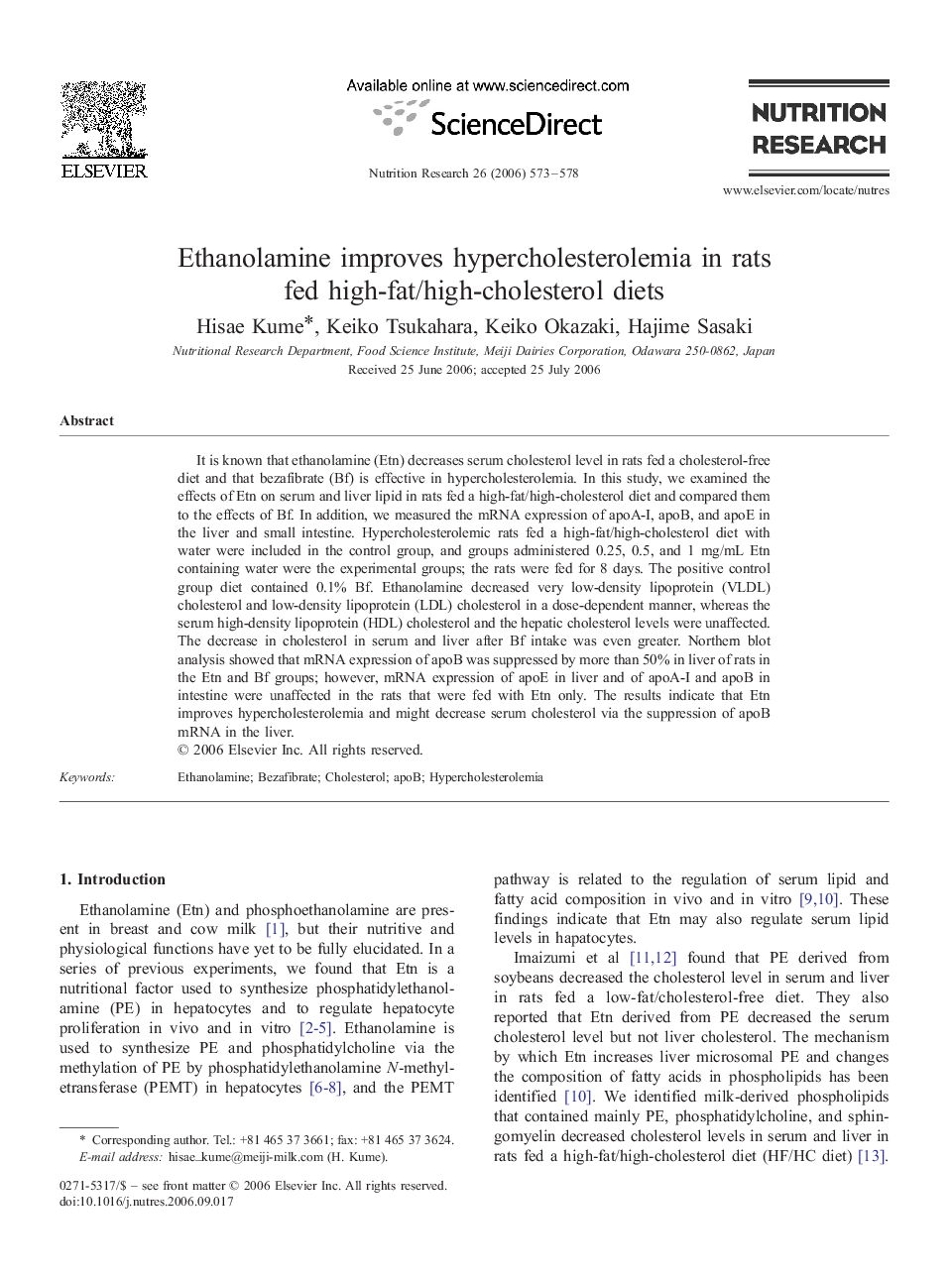| Article ID | Journal | Published Year | Pages | File Type |
|---|---|---|---|---|
| 2809807 | Nutrition Research | 2006 | 6 Pages |
It is known that ethanolamine (Etn) decreases serum cholesterol level in rats fed a cholesterol-free diet and that bezafibrate (Bf) is effective in hypercholesterolemia. In this study, we examined the effects of Etn on serum and liver lipid in rats fed a high-fat/high-cholesterol diet and compared them to the effects of Bf. In addition, we measured the mRNA expression of apoA-I, apoB, and apoE in the liver and small intestine. Hypercholesterolemic rats fed a high-fat/high-cholesterol diet with water were included in the control group, and groups administered 0.25, 0.5, and 1 mg/mL Etn containing water were the experimental groups; the rats were fed for 8 days. The positive control group diet contained 0.1% Bf. Ethanolamine decreased very low-density lipoprotein (VLDL) cholesterol and low-density lipoprotein (LDL) cholesterol in a dose-dependent manner, whereas the serum high-density lipoprotein (HDL) cholesterol and the hepatic cholesterol levels were unaffected. The decrease in cholesterol in serum and liver after Bf intake was even greater. Northern blot analysis showed that mRNA expression of apoB was suppressed by more than 50% in liver of rats in the Etn and Bf groups; however, mRNA expression of apoE in liver and of apoA-I and apoB in intestine were unaffected in the rats that were fed with Etn only. The results indicate that Etn improves hypercholesterolemia and might decrease serum cholesterol via the suppression of apoB mRNA in the liver.
